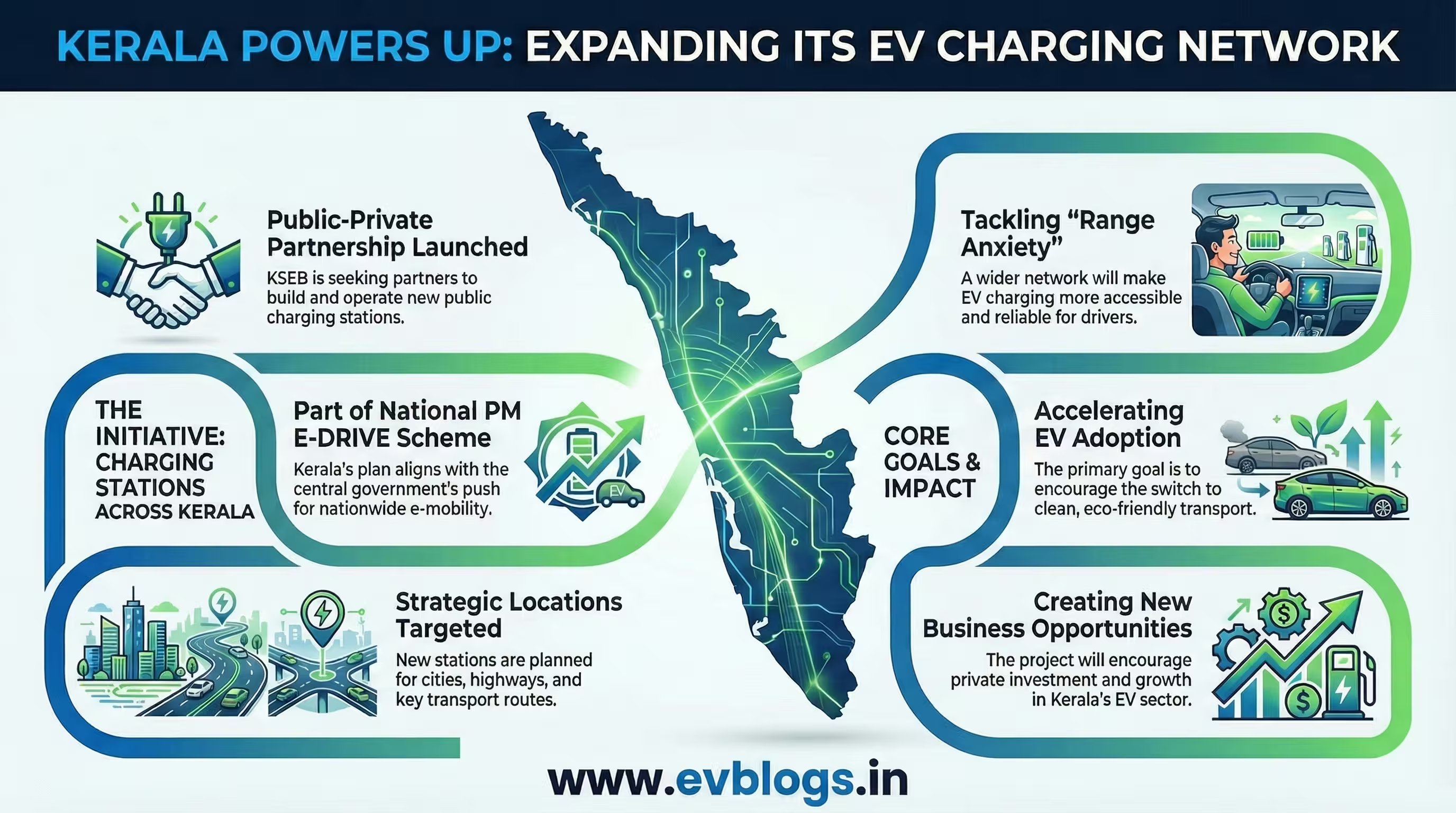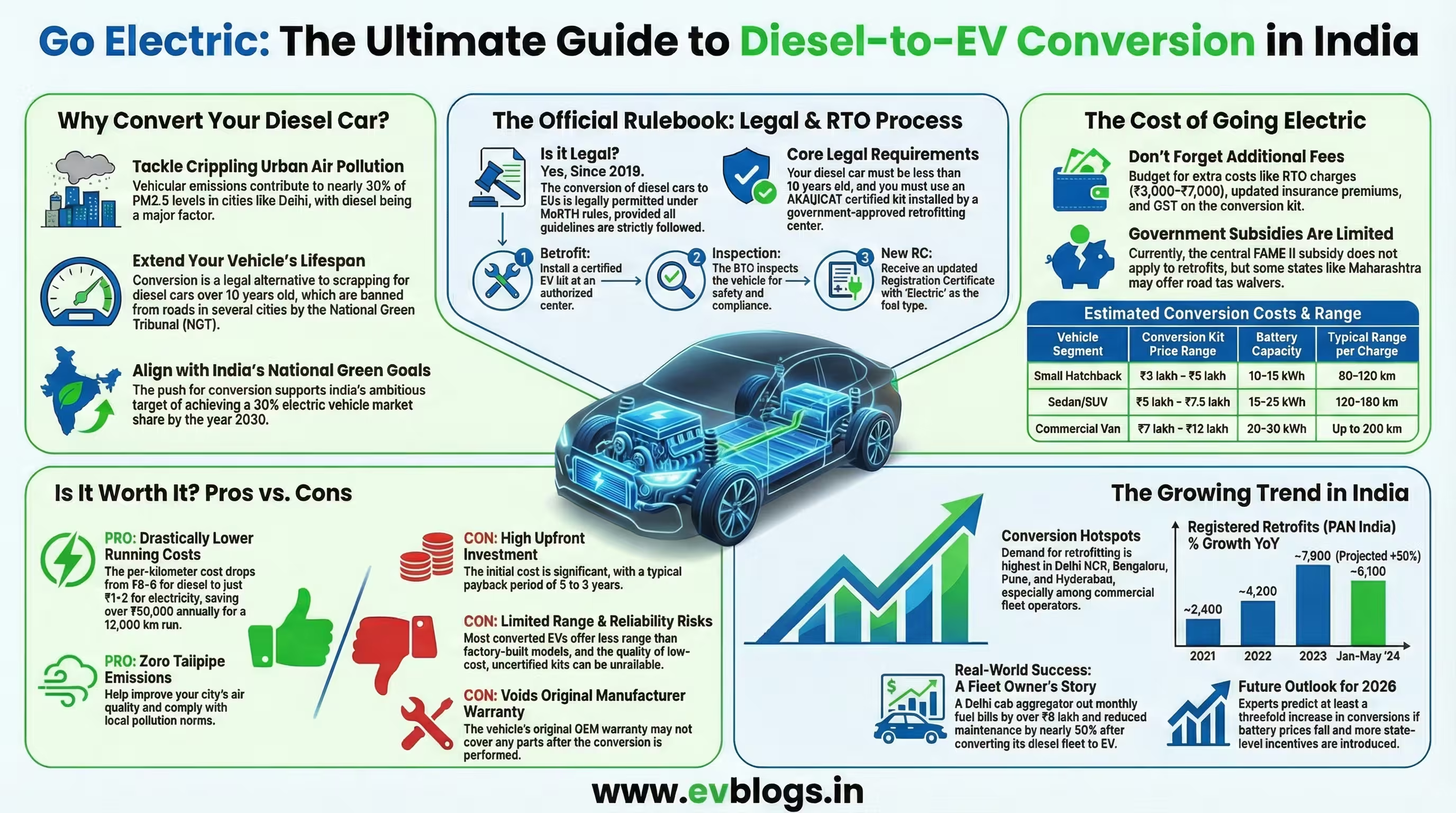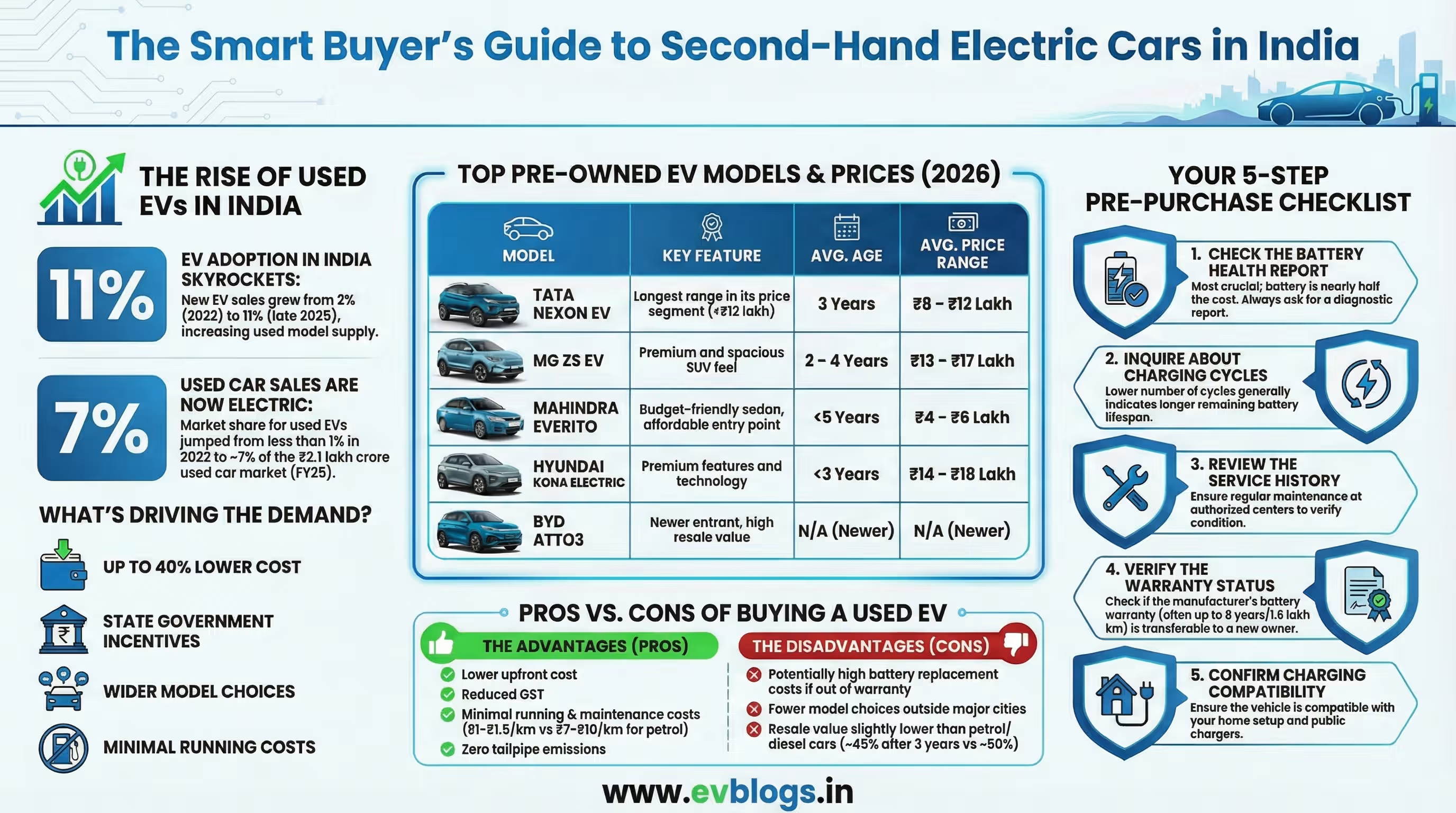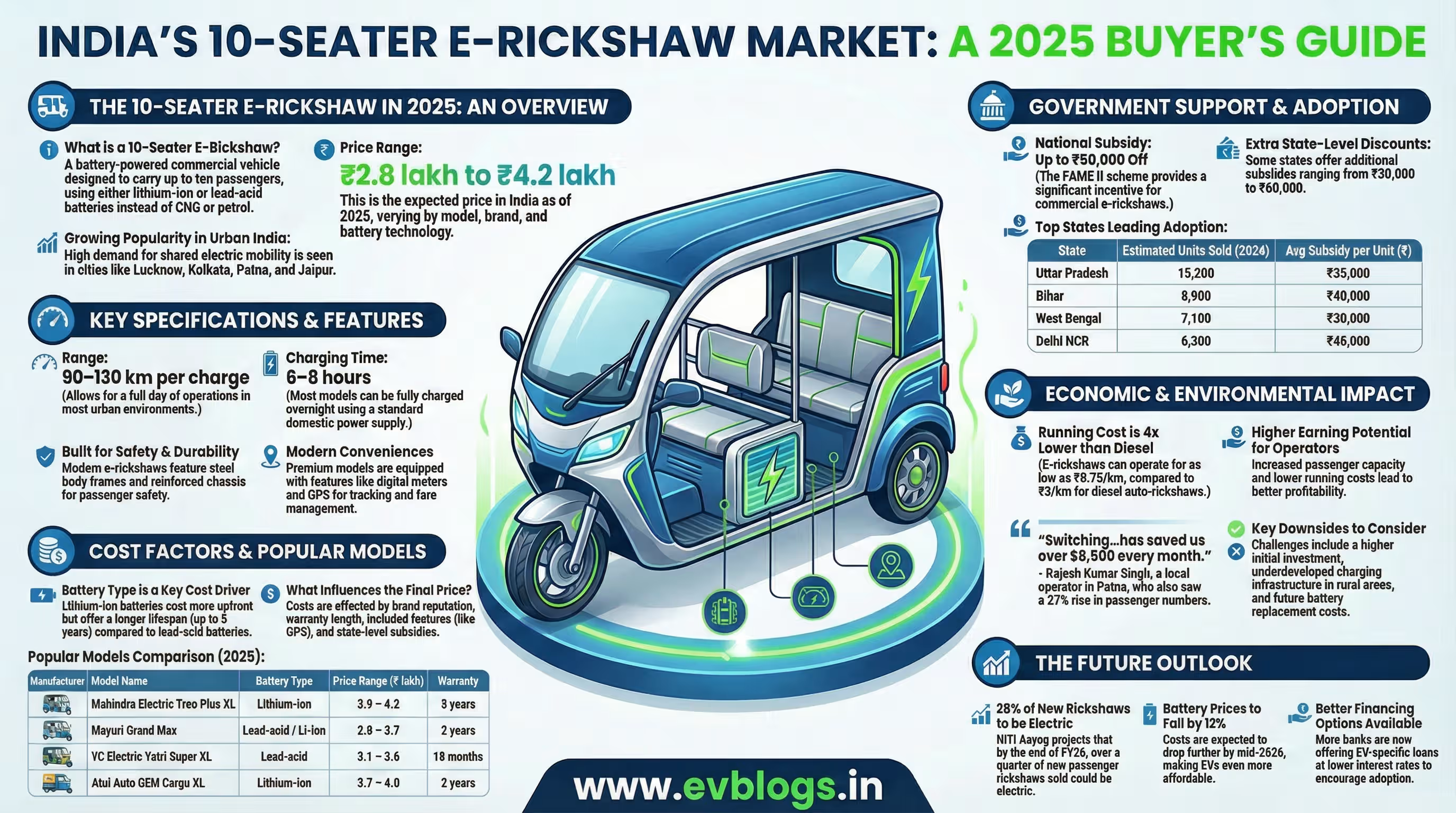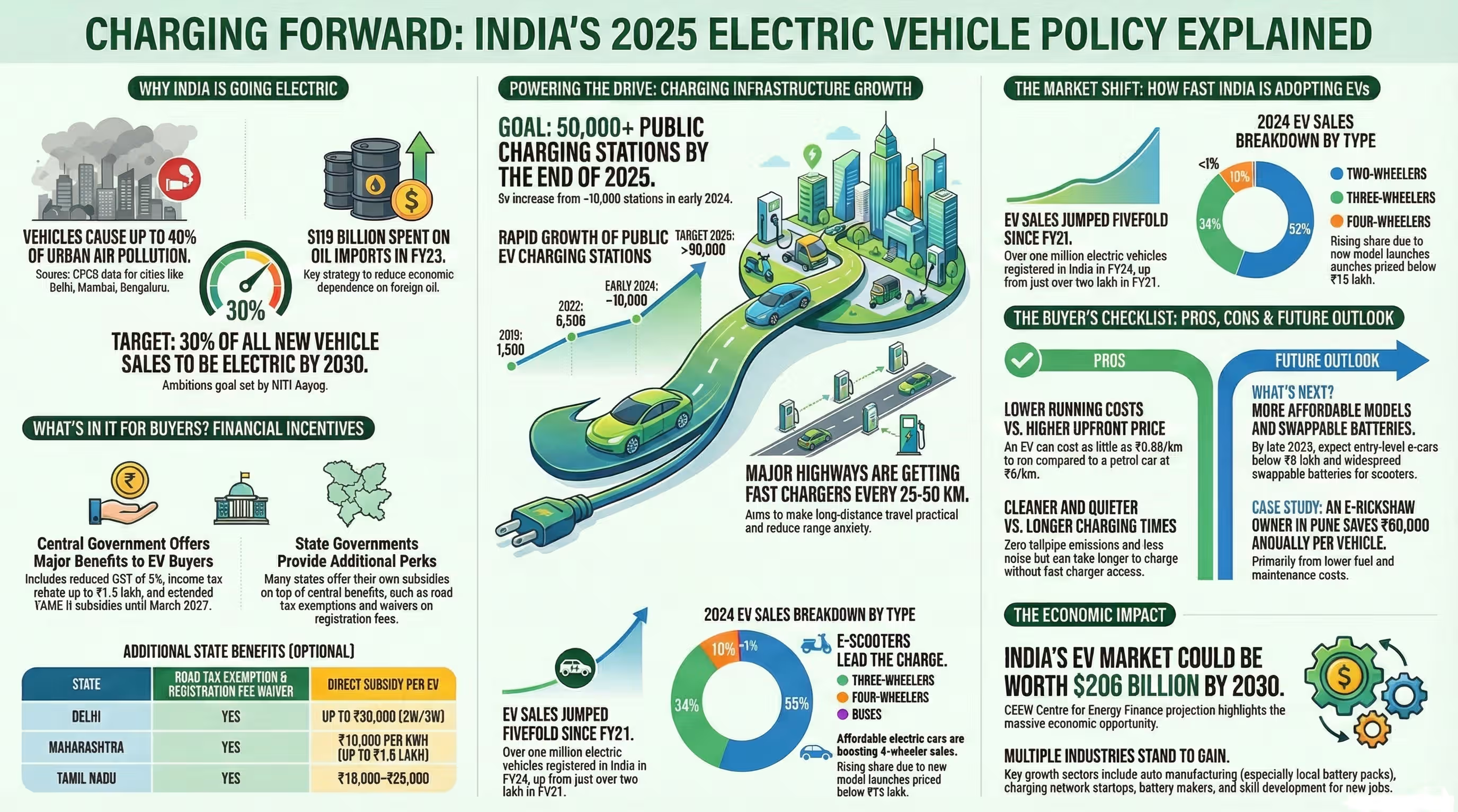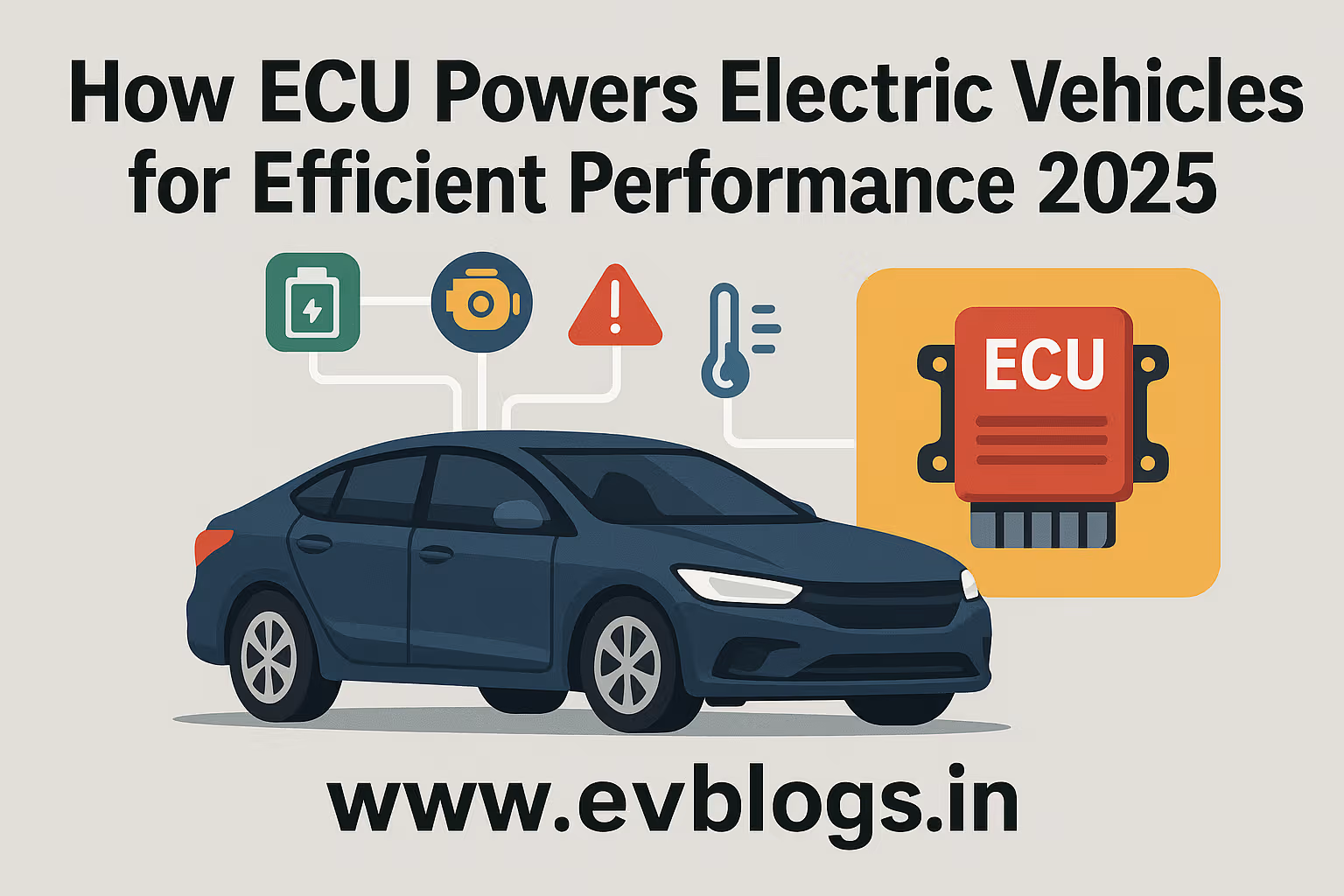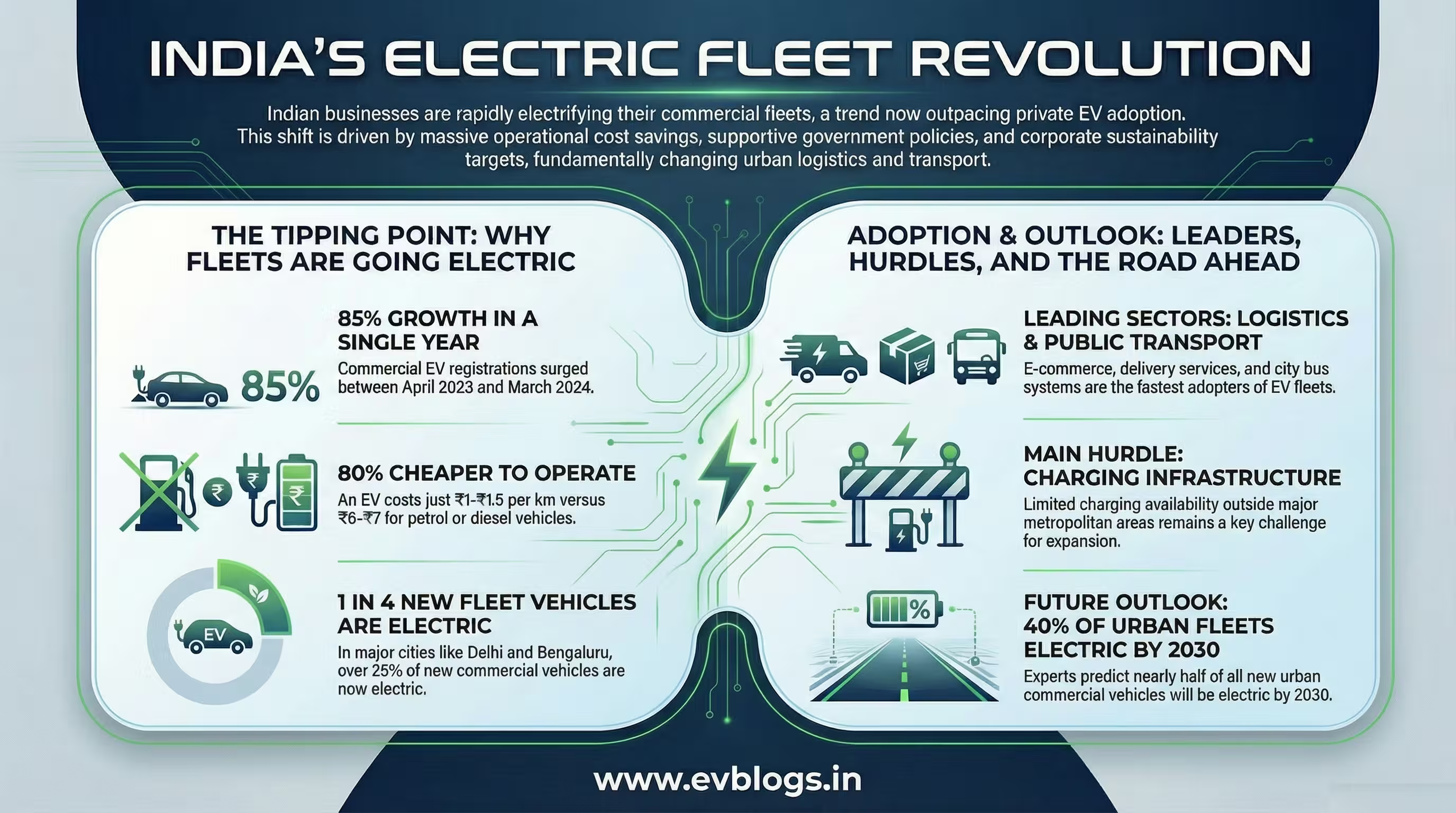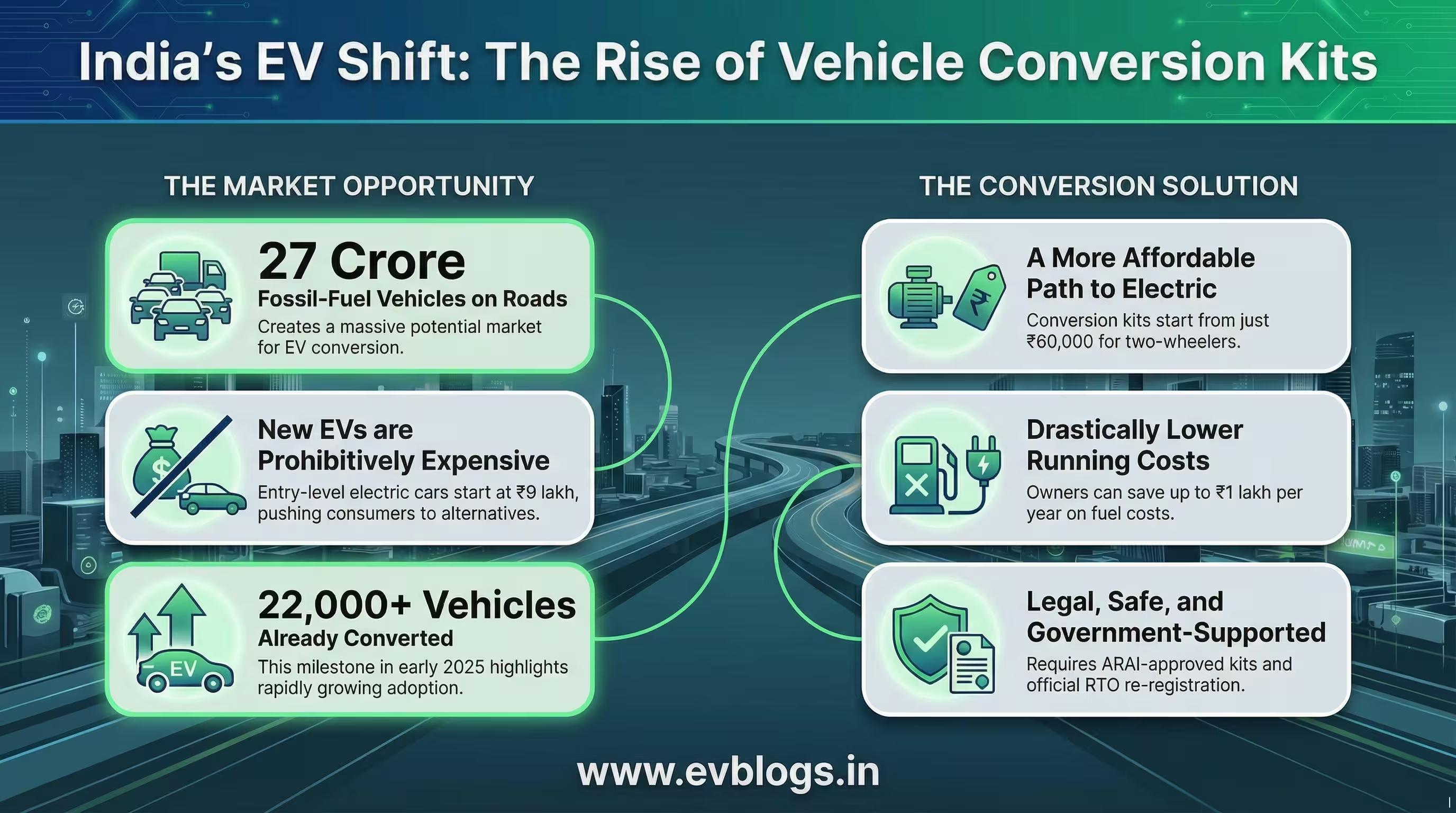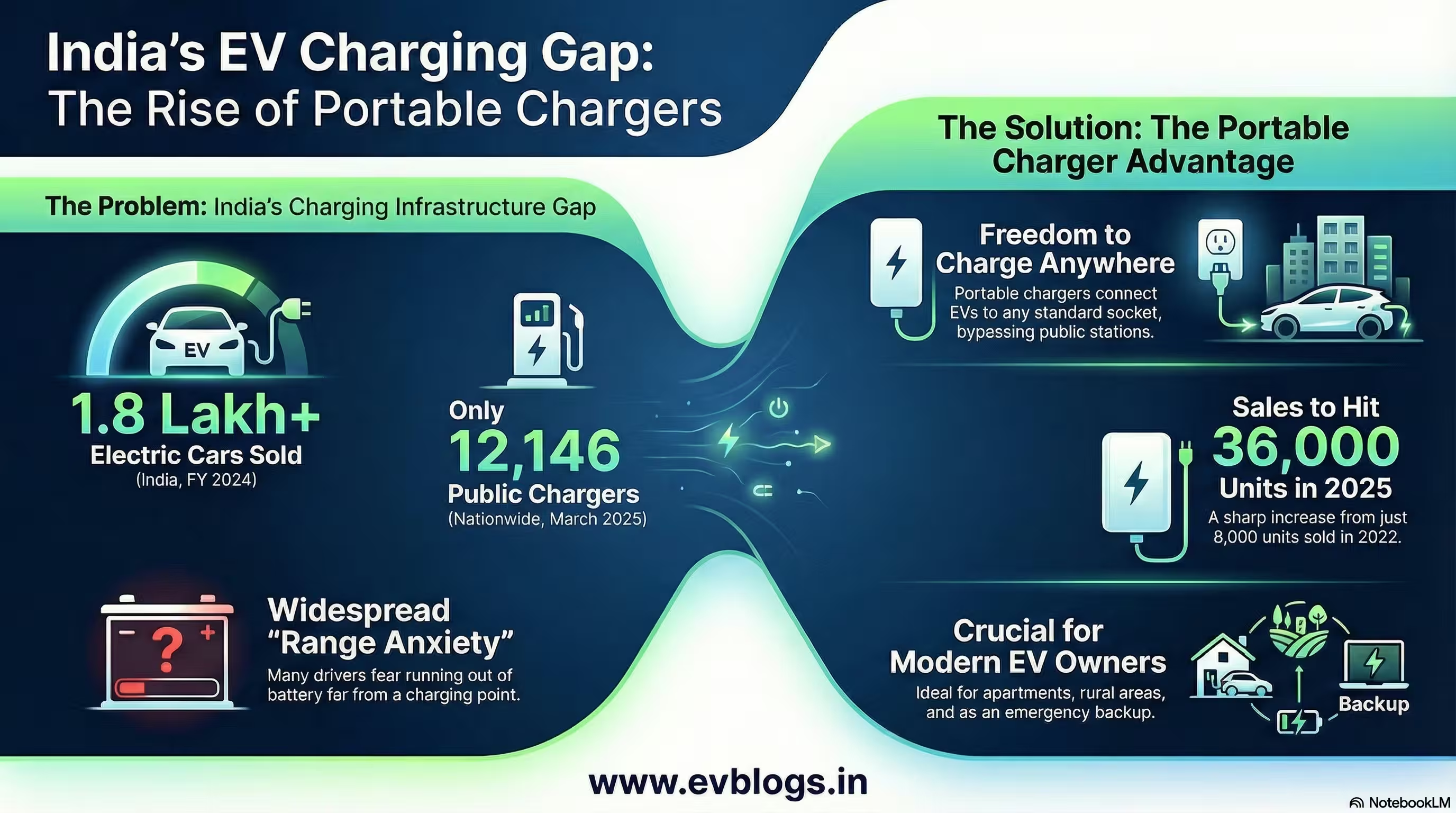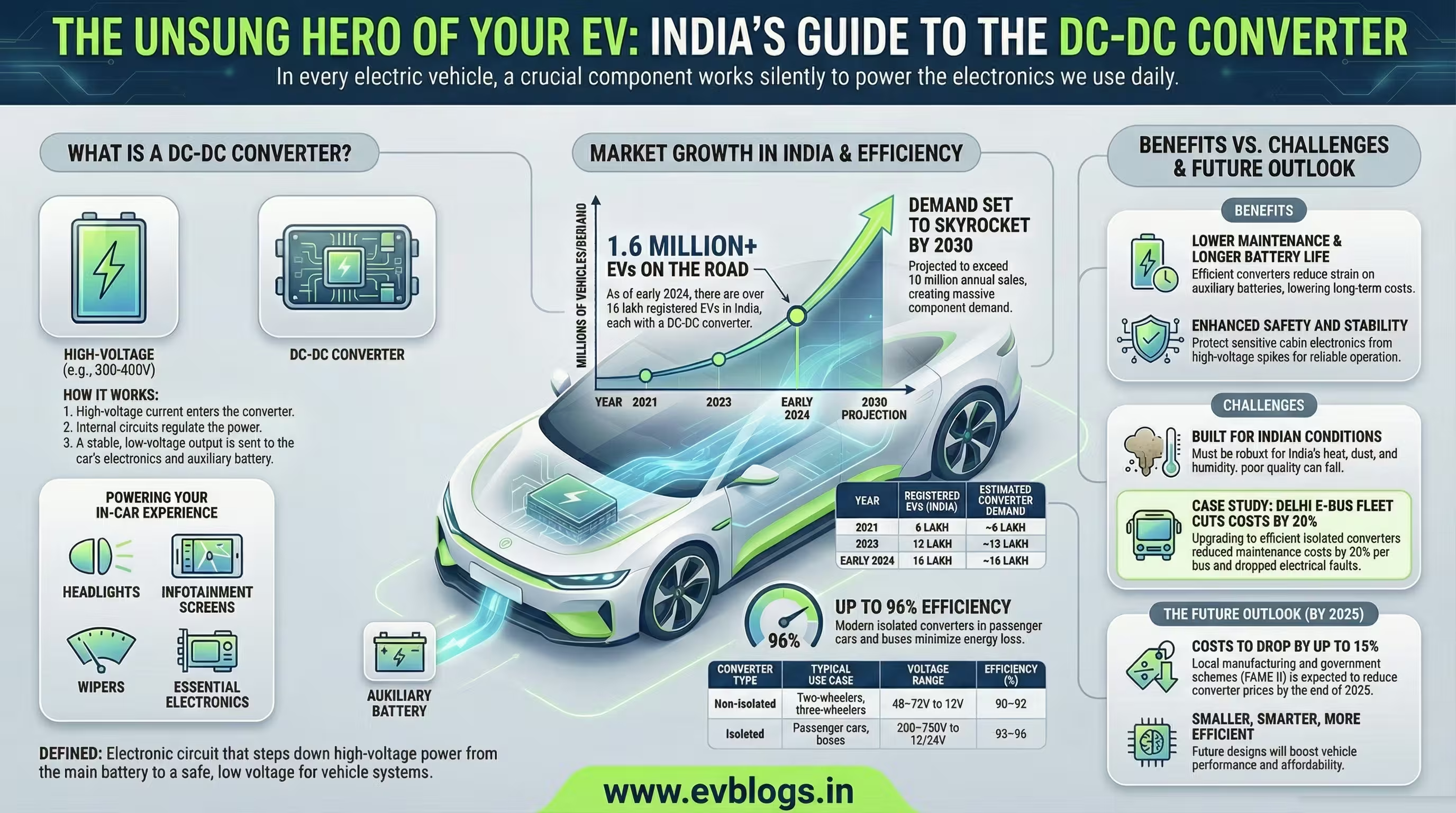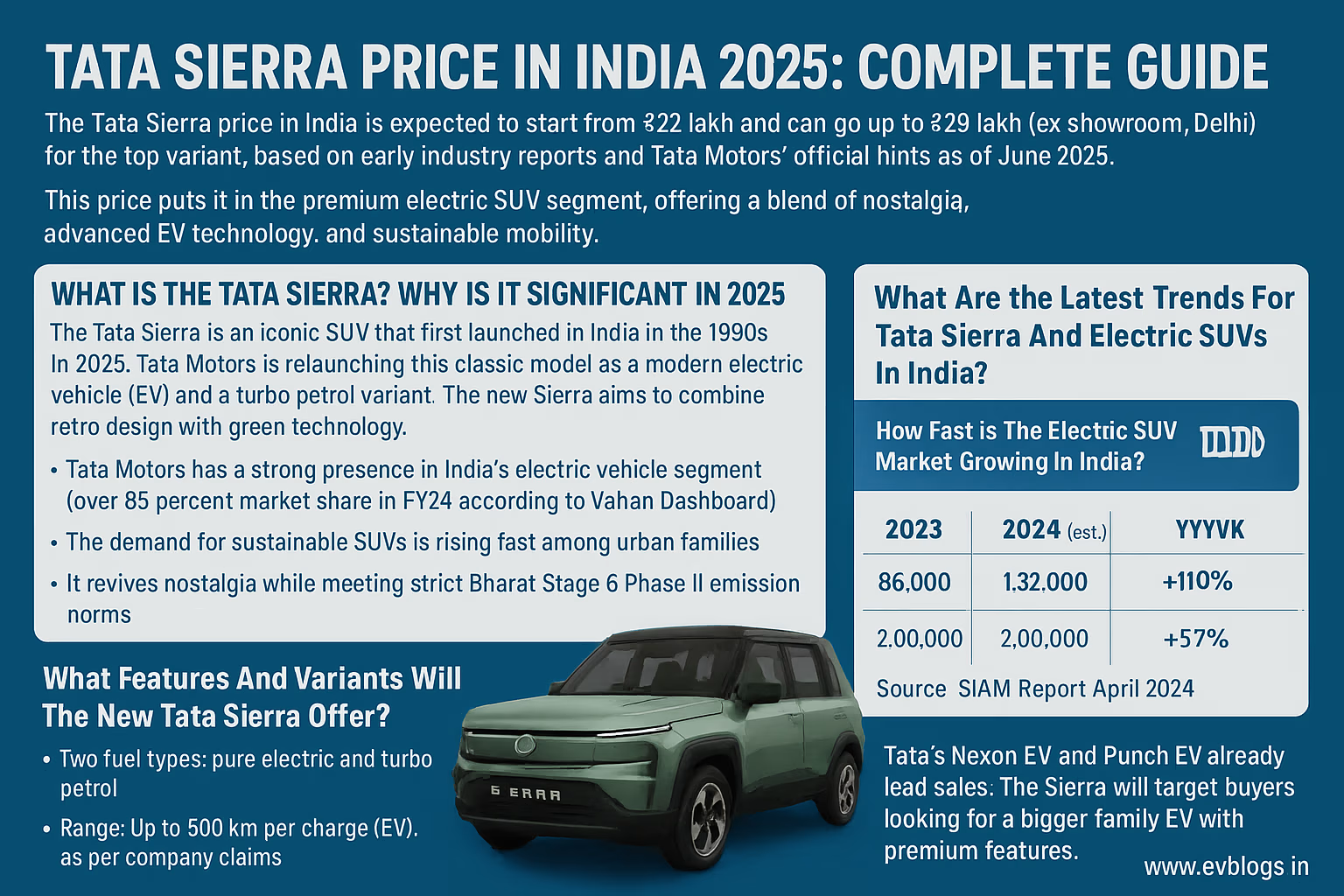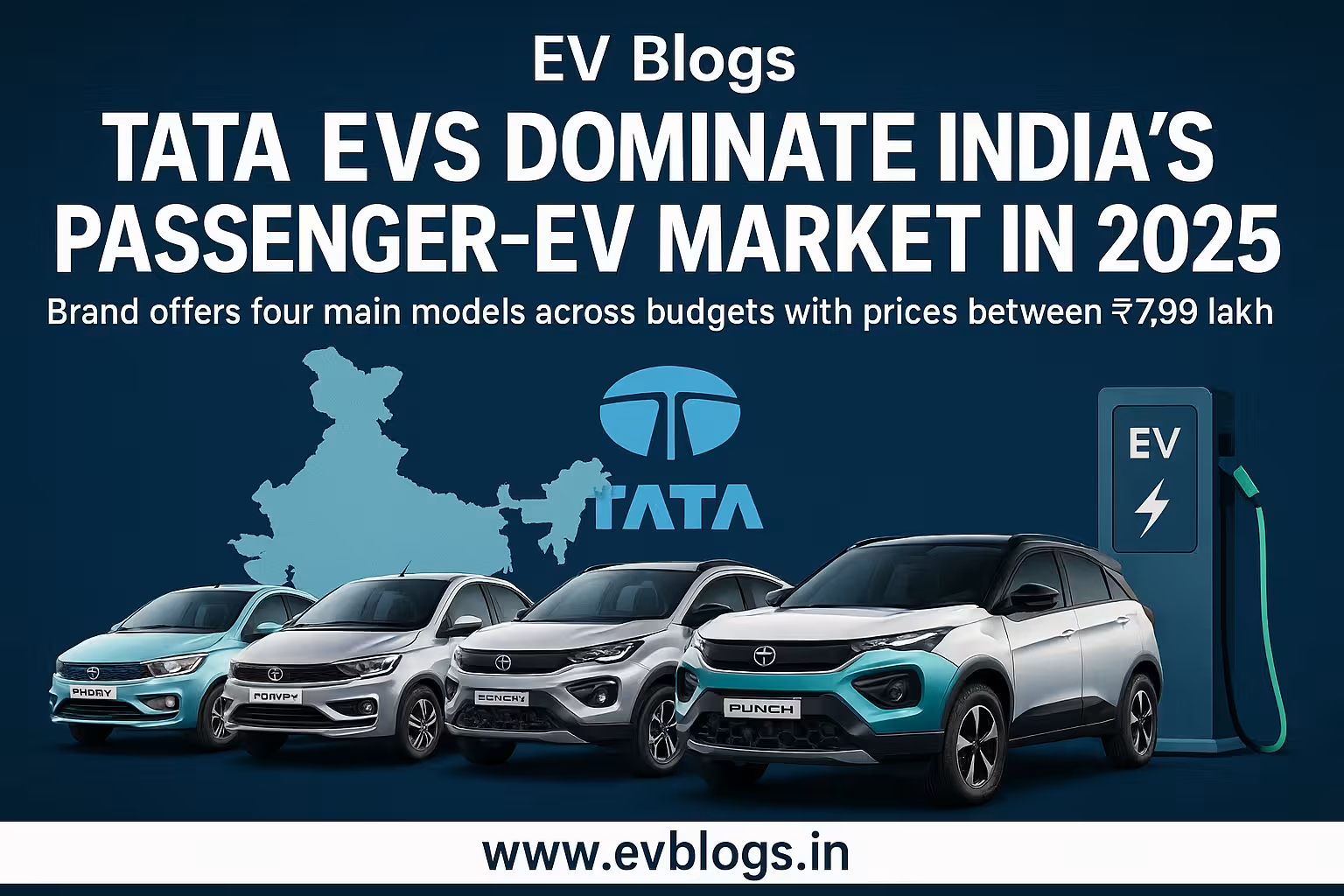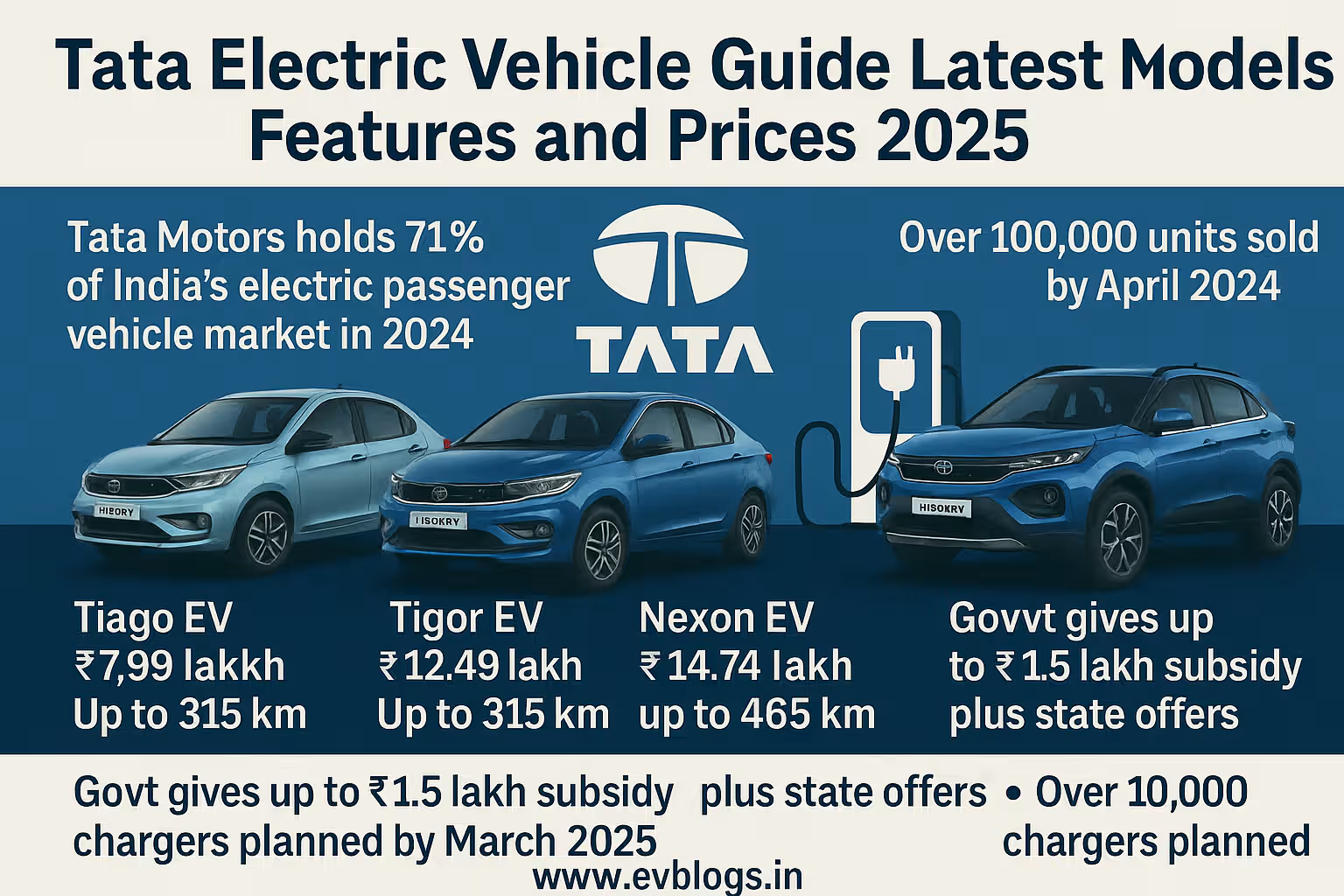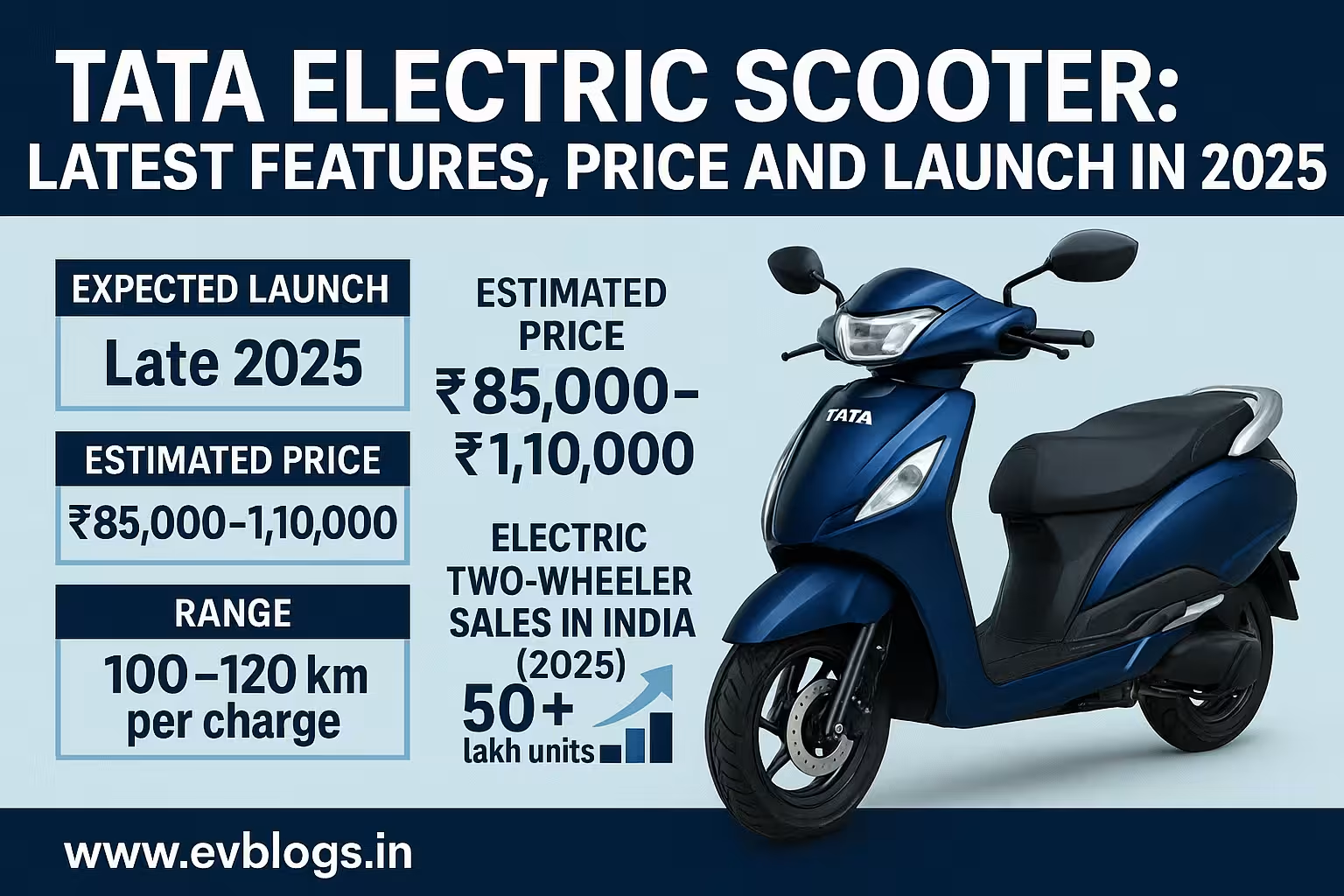Hedhvick Hirav
Hedhvick Hirav is a dedicated EV researcher and editor with over 4 years of experience in India’s growing electric vehicle ecosystem. Their contributions have been recognized in leading sustainability publications and automotive journals.
Summarize & analyze this article with
Choose an AI assistant and open this article directly:
Tip: if the AI doesn’t fetch the page automatically, paste the article URL manually.

What Is EV Battery Recycling and Why Does It Matter in India?
The electric vehicle (EV) revolution is picking up speed in India. As you see more electric cars, bikes, and buses on Indian roads, EV batteries are becoming a hot topic—especially once they reach their end of life. But what happens to these used batteries? EV battery recycling is all about recovering valuable materials from used lithium-ion batteries, reducing pollution, and supporting India’s green mobility goals.
- EV battery recycling prevents hazardous waste and keeps toxic materials like lithium, cobalt, and nickel out of landfills.
- Recycling helps India reduce its dependence on imported raw materials.
- With the market for EVs projected to grow more than 49% CAGR by 2030 (as per NITI Aayog), India is expected to generate over 1.8 million tonnes of battery waste by 2030.
- As of 2025, battery waste is already a noteworthy concern in urban regions like Delhi, Mumbai, and Bengaluru.
Did You Know?
By 2025, India is estimated to have over 6 lakh used EV batteries each year needing efficient recycling solutions.
Why Should You Care About EV Battery Waste in India?
You may wonder—why is EV battery waste a big deal for you or your community? The answer lies in the environmental and economic impacts:
- Improperly disposed batteries can contaminate soil and water with toxic chemicals.
- Recycling supports the circular economy, reducing the need for new mining and lowering the carbon footprint.
- With government incentives and stricter regulations, recycling is now often cheaper and more profitable than disposal.
- If you’re an EV owner, responsible recycling ensures you comply with new legal norms and environmental standards.
Key Concerns for Indian Users
- Many informal recyclers use unsafe methods, causing pollution and health issues.
- High-value metals are often lost due to lack of advanced recycling infrastructure.
- Battery fires in landfills have increased, especially during hot Indian summers.
Expert Insight
According to the Central Pollution Control Board (CPCB), only about 3% of used lithium-ion batteries were recycled formally in India as of 2023. By 2025, this number is improving thanks to stricter government rules.
When Are Indian EV Batteries Considered “End of Life” and Ready for Recycling?
As an EV user, you might ask: How long do EV batteries last, and when should you recycle? In India, an EV battery is usually considered end-of-life when its capacity drops below 70-80% of the original.
- For most Indian EVs, this happens after 6-8 years or 1.2-1.5 lakh km.
- Two-wheeler batteries may last 4-5 years, while buses might need battery changes in 5-7 years.
- Many batteries find a “second life” in energy storage before being recycled.
How Do You Know It’s Time?
- You notice significantly reduced range or more frequent charging needs.
- Your vehicle service center recommends a battery change.
- Government guidelines or dealers notify you about battery retirement schemes.
Did You Know?
In 2025, most leading Indian EV OEMs like Tata Motors and Ola Electric offer battery take-back programs that let you safely hand over your used battery.
Which Are the Top Players in India’s EV Battery Recycling Market in 2025?
With the rising need to recycle EV batteries, several Indian and global companies have set up recycling operations.
Key Competitors and Their Offerings
| Company Name | Type | Location | Annual Recycling Capacity (2025) | Technology Used | Notable Partners | Take-Back Policy |
|---|---|---|---|---|---|---|
| Attero Recycling | Indian | Noida | 15,000+ tons | Hydrometallurgy | Tata, MG, Hyundai | Yes, pan-India |
| Lohum Cleantech | Indian | Greater Noida | 10,000+ tons | Direct Recycling | Ola, Ather, Sun Mobility | Yes, with OEMs |
| Gravita India | Indian | Rajasthan | 5,000+ tons | Pyrometallurgy | Local dealerships | Yes, regional |
| Tata Chemicals | Indian | Gujarat | 3,000+ tons | Hydrometallurgy | Tata Motors | Yes, in select cities |
| TES-AMM | Singaporean | Mumbai | 2,000+ tons | Mechanical-Physical | Global automakers | Yes, via partners |
| Metastable Materials | Indian | Bengaluru | 1,500+ tons | Proprietary | Startups, R&D | Pilots in 2025 |
| ACE Green Recycling | US-Indian | Haryana | 2,500+ tons | Green Chemistry | MOU with auto OEMs | To be expanded in 2025 |
| Exigo Recycling | Indian | Delhi NCR | 1,000+ tons | Mechanical | EV fleets, cab operators | Pickup service in NCR |
| Ecoreco | Indian | Mumbai | 900 tons | Hydro-mechanical | Local authorities | Yes, limited |
| GreenZon Recycling | Indian | Hyderabad | 500 tons | Physical-chemical | Battery dealers | Yes, citywide |
In-Depth List: What Makes Each Company Stand Out?
- Attero Recycling: India’s largest e-waste recycler, offers pan-India collection and advanced metal recovery. Recently expanded to handle EV batteries from leading car brands.
- Lohum Cleantech: Known for direct recycling, extracting lithium, cobalt, and nickel with over 90% efficiency. Partners with major two-wheeler brands.
- Gravita India: Focuses on regional collection and cost-efficient pyrometallurgical processing, serving tier-2 and tier-3 cities.
- Tata Chemicals: Brings R&D strength, works closely with Tata Motors for in-house battery circularity.
- TES-AMM: Global expertise, offers services to luxury automakers and multinational fleets.
- Metastable Materials: Bengaluru-based innovator, testing new low-energy recycling methods for safer operations.
- ACE Green Recycling: US-Indian joint venture, building large-scale green chemistry plants in Haryana.
- Exigo Recycling: User-friendly pickup, focused on Delhi NCR market, supports cab and commercial fleets.
- Ecoreco: Strong government partnerships, manages batteries from municipal e-buses.
- GreenZon Recycling: Hyderabad-based, serves upcoming southern EV markets.
Expert Insight
Many of these companies are scaling up and plan to double their capacity by 2027 as India’s EV adoption accelerates.
What Regulations Govern EV Battery Recycling in India in 2025?
If you own or plan to own an electric vehicle in India, it’s essential to understand the rules around battery recycling.
Key Rules and Guidelines
- The Ministry of Environment, Forest and Climate Change (MoEFCC) updated the Battery Waste Management Rules, 2022—effective fully by March 2025.
- Extended Producer Responsibility (EPR): EV manufacturers must collect and recycle a minimum percentage of all batteries sold—set at 70% in 2025, rising to 100% by 2027.
- Authorized Recyclers: Only government-approved recyclers can process used lithium-ion batteries.
- Stiff penalties apply for illegal disposal or use of informal/unlicensed recyclers.
What This Means for You
- You should return used batteries to authorized dealers or recycling partners.
- Always demand a certificate of recycling or safe disposal for compliance.
- Your warranty and insurance may be affected if you don’t follow these rules.
Did You Know?
The Indian government’s 2025 rules require barcoding and tracking of each EV battery—from manufacture to recycling—using a national battery registry.
How Does the EV Battery Recycling Process Work in India?
You might wonder: What actually happens when you give back your EV battery? Here’s a step-by-step look at the Indian recycling process in 2025:
EV Battery Recycling Steps
- Collection: Batteries collected from dealerships, service centers, or via pickup programs.
- Dismantling: Safe removal of battery modules and separation of hazardous components.
- Discharge: Any remaining charge is safely removed to prevent accidents.
- Material Recovery: Through hydrometallurgical or pyrometallurgical processes, metals like lithium, cobalt, and nickel are extracted.
- Purification and Reuse: Extracted metals undergo refining and are sold to battery makers or other industries.
Unique Features in India
- Several companies are piloting “urban mining”—extracting metals at city-based microplants for lower logistics costs.
- Digital tracking ensures batteries are not lost to unsafe informal sectors.
Expert Insight
India’s government aims for 60% recovery rate of all critical metals from spent EV batteries by 2025, compared to less than 15% before 2022.
Which EV Battery Recycling Methods Are Used in India?
As an Indian EV user or business, you should know the pros and cons of different recycling methods:
Key Recycling Technologies
- Hydrometallurgical: Uses chemicals to dissolve metals; high recovery, lower emissions, but needs careful effluent management.
- Pyrometallurgical: High-temperature smelting; fast but can emit toxic fumes if not well managed.
- Direct Physical Recycling: Mechanical separation; safer, but less efficient for complex battery chemistries.
- Green Chemistry/Proprietary: Some startups are piloting solvent-free or low-energy methods.
Which Method Is Best?
- Most large recyclers in India now use hydrometallurgy for the best balance of safety and recovery rates.
- Smaller players may still use physical methods due to lower costs.
- Pyrometallurgy is being phased out in urban areas due to pollution concerns.
Did You Know?
By 2025, over 70% of formal EV battery recycling capacity in India uses hydrometallurgical processes, reflecting stricter environmental norms.
What Are the Prospects for India’s EV Battery Recycling Industry by 2025 and Beyond?
If you’re considering the future, the outlook for EV battery recycling in India is highly positive and rapidly evolving.
Market Growth and Opportunities
- The Indian battery recycling market is expected to reach ₹7,500 crore by 2025 (as per CEEW).
- Over 200 startups and MSMEs are entering the sector, creating thousands of jobs in collection, logistics, and recycling.
- Battery manufacturers and automakers are investing in in-house recycling plants for a closed-loop ecosystem.
Key Drivers
- Rapid EV adoption due to FAME II incentives and high fuel prices.
- Global supply chain constraints push India to localize raw material recovery.
- Increasing consumer awareness about sustainability.
Challenges
- Informal sector dominance in smaller cities.
- High initial setup cost for advanced recycling plants.
- Need for more public collection points.
Expert Insight
By 2025, India’s formal recycling capacity can process only about 60% of the projected battery waste. There’s a huge opportunity for new players and technology upgrades.
Which Government Schemes and Incentives Help You Recycle EV Batteries in India?
If you’re an EV owner or a business, knowing about government support can help you make better decisions.
Key Schemes and Incentives
- FAME II: Offers incentives for vehicles that use recyclable batteries.
- PLI Scheme for ACC Battery Storage (2021-2030): Supports local battery manufacturing and end-of-life management.
- Tax Benefits: GST rebates (up to 5%) for recycled battery components.
- State-level incentives: Maharashtra, Delhi, Gujarat, and Karnataka offer extra support for recycling infrastructure.
How You Benefit
- Lower upfront costs for new vehicles if you return your old battery.
- Additional discounts from some OEMs for participating in take-back programs.
- Recycling certificates can help you with insurance or resale paperwork.
Did You Know?
By 2025, over 30% of new EV buyers in Delhi and Mumbai opt for OEM battery take-back, up from 10% in 2022.
How Do Indian EV Owners and Fleets Actually Recycle Their Batteries? (User Stories & Experiences)
What does battery recycling look like for real users in India? Here are some first-hand stories from 2025:
Ravi Kumar, Bengaluru (Personal EV Car Owner):
“When my Nexon EV’s battery dropped to 70% capacity after 6 years, Tata dealership offered a take-back at ₹25,000 cashback. The battery was picked up, and within two weeks, I got a recycling certificate for my records.”Anjali Gupta, Delhi (Fleet Operator):
“Managing 20 e-rickshaws, battery change is a big cost. Partnering with Exigo Recycling meant hassle-free pickup and compliance help. It also improved our fleet’s green image!”Aman Singh, Pune (Startup Founder):
“We joined Lohum Cleantech’s pilot for battery repurposing, turning old scooter batteries into solar power banks for rural schools. It’s profitable and impactful.”Suhasini Reddy, Hyderabad (EV Enthusiast):
“Most workshops I approached were informal, but finally found GreenZon Recycling, which issued a formal certificate and explained the process in simple terms.”
Did You Know?
Many leading Indian cities now offer localized battery drop-off points at metro stations and shopping malls, making recycling more convenient for users like you.
What Are the Costs and Benefits of EV Battery Recycling in India (2025)?
As an Indian EV user, you might want to know: Is recycling worth it financially and environmentally?
Cost Factors
- Recycling cost: ₹75-₹150 per kg in 2025 (varies by battery type and location).
- Cashback or buy-back: Many OEMs and recyclers offer ₹10,000-₹40,000 per car battery (depending on age, size, and chemistry).
Benefits
- Environmental: Cuts carbon footprint by 30-40% vs. new battery manufacturing.
- Economic: Reduces India’s import bill for metals; supports local industry.
- Legal: Compliance with EPR rules, avoids fines or warranty loss.
- Convenience: Many companies offer home pickup and immediate certification.
Example Comparison: Cost vs. Cash-Back for Leading EV Brands
| EV Model | Battery Type | Recycling Cost (₹/Battery) | Cashback/Discount (₹) | Official Take-back Program | Typical Process Time |
|---|---|---|---|---|---|
| Tata Nexon EV | Li-ion | 18,000 | 25,000 | Yes | 2 weeks |
| Mahindra XUV400 | Li-ion | 19,000 | 22,000 | Yes | 10 days |
| Ola S1 Pro | NMC Li-ion | 5,000 | 7,500 | Yes | 7 days |
| Ather 450X | Li-ion | 3,500 | 5,000 | Yes | 7 days |
| MG ZS EV | Li-ion | 16,000 | 20,000 | Yes | 14 days |
| Hyundai Kona | Li-ion | 18,000 | 21,000 | Yes | 10 days |
| TVS iQube | LFP Li-ion | 2,800 | 4,500 | Yes | 7 days |
| Hero Electric Optima | Li-ion | 2,200 | 3,000 | Yes | 5 days |
| Bajaj Chetak | Li-ion | 2,700 | 4,000 | Yes | 8 days |
| BYD e6 | LFP Li-ion | 19,500 | 23,000 | Yes | 15 days |
Detailed Description
- Tata Nexon EV: Most widespread take-back network, transparent process, and best cashback.
- Ola S1 Pro & Ather 450X: Fastest turnaround for recycling and buy-back, popular among urban users.
- MG ZS EV, Hyundai Kona: Higher cost but premium service, targeted at upper segment buyers.
- Hero Electric, TVS iQube: Most affordable for two-wheelers, with easy drop-off at dealer.
- BYD e6: High-capacity battery, maximum cashback but longer processing time.
Expert Insight
As an EV buyer, ask for recycling discounts and certificates upfront—it’s now a standard part of the deal in 2025.
How Can You Make Informed Decisions About EV Battery Recycling in India?
Making a smart choice about your used EV battery can save you money, help the environment, and keep you within the law.
What Should You Look For?
- Authorized Recycler: Always choose a recycler listed by the CPCB or your state pollution control board.
- Take-back Program: Many OEMs offer bundled recycling—ask your dealer.
- Paperwork: Ensure you receive a recycling/disposal certificate for your battery.
- Cost and Cashback: Compare offers and select the best mix of convenience, payout, and speed.
- Environmental Impact: Ask about recycling methods—prefer hydrometallurgical or green chemistry processes.
Common Mistakes to Avoid
- Handing over batteries to scrap dealers or informal recyclers—illegal and dangerous.
- Ignoring paperwork—can lead to legal or warranty issues.
- Missing out on cashback by delaying battery return.
Did You Know?
By 2025, over 75% of Indian EV buyers say they consider recycling options before purchasing a vehicle, compared to just 30% in 2020.
What Is the Final Verdict on EV Battery Recycling Prospects & Regulations in India for 2025?
As an Indian EV user, you’re now in a great position to benefit from the country’s rapidly improving battery recycling ecosystem. The combination of stricter rules, generous incentives, advanced recycling technology, and growing consumer awareness makes responsible recycling easier and more rewarding than ever.
- Always return your used battery to an authorized recycler or through your vehicle dealer’s take-back program.
- Take advantage of cashback schemes and ensure you receive proper certification.
- Stay updated on your state’s latest rules—compliance is not just good for the environment, but also for your wallet and peace of mind.
Final Verdict:
If you own or plan to buy an EV in India in 2025, actively participate in formal battery recycling. It’s the safest, most economical, and environmentally responsible choice for you and future generations.
Expert Insight
Policy experts predict that by 2027, nearly every Indian city will have at least one formal EV battery recycling facility, making recycling as routine as servicing your vehicle.
FAQs: EV Battery Recycling in India 2025
Q1: Is it mandatory to recycle EV batteries in India?
Yes, as per the Battery Waste Management Rules 2022 (fully effective from March 2025), recycling through authorized channels is mandatory for all end-of-life EV batteries.
Q2: How do I find an authorized EV battery recycler in my city?
Check the Central Pollution Control Board or your state pollution board’s website for a list of approved recyclers, or ask your vehicle dealer for take-back options.
Q3: Can I get money back for returning my used EV battery?
Yes, most OEMs and recyclers offer cashback or discounts (ranging from ₹3,000 to ₹40,000) depending on battery size and brand.
Q4: Are there any risks if I dispose of my EV battery informally?
Yes, improper disposal is illegal and dangerous, leading to environmental hazards and possible fines or loss of vehicle warranty.
Q5: What is the most environmentally friendly method for recycling EV batteries in India?
Hydrometallurgical processes are considered the most efficient and eco-friendly, now used by over 70% of formal recyclers in India as of 2025.
Disclaimer: All data is accurate as of June 2025. Please verify with your local authorities or OEM for the latest updates and region-specific rules.


